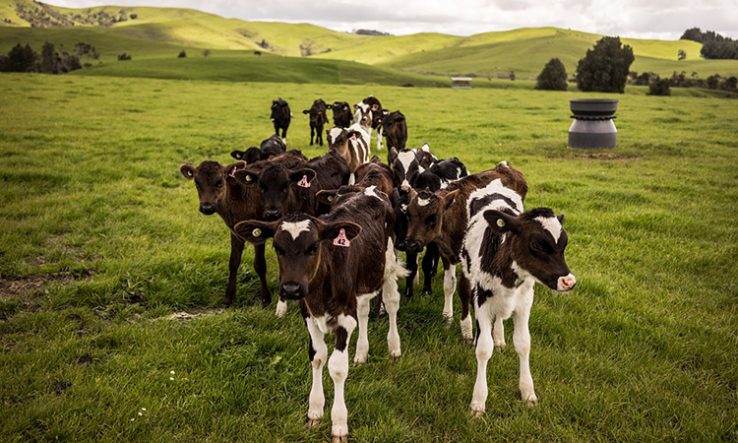
Image: jeffjuit
Scientist says dairy has been a 'riches to rags' story with negative ecological impacts
New Zealand must significantly reduce its farming intensity, particularly the use of synthetic nitrogen fertilisers by the dairy industry, in order to cut greenhouse emissions, a leading freshwater scientist says.
Mike Joy, a lecturer at Victoria University Wellington, says cutting back the industrial scale of farming will have “multiple positive outcomes, from freshwater to human health”.
He says the country’s polluted rivers and lake are “a microcosm of a failed global agriculture system that is driving biodiversity loss, nitrogen pollution and climate change”.
“New Zealand could be a global showcase for sustainable agriculture. The country is blessed with many natural advantages like nutrient-rich soils, abundant rainfall, low human population and a global perception of clean and healthy ecosystems,” he writes in an editorial published by Newsroom, an independent NZ news website.
“Rather than taking advantage of its natural attributes, New Zealand intensified and industrialised agriculture. It went from a low-input sustainable food production system to one based on fossil-fuel-derived, synthetic nitrogen fertiliser and energy.”
The editorial follows the NZ government’s recent announcement of a five-year plan to introduce emissions pricing for agriculture. The sector is responsible for almost 50 per cent of the country’s greenhouse emissions and the government invests $20 million annually in methane and carbon reduction research.
“What is missing in the government’s approach is any acknowledgement of the strong links between agricultural emissions to the atmosphere and water,” Joy writes.
“The sector will have five years before having to pay for five percent of its share of emissions. The government built in a backstop of bringing agricultural emissions into the emissions trading scheme by 2025, or earlier, if there isn’t sufficient progress on curbing emissions.”
He says NZ’s status as the world’s biggest dairy exporter has been achieved over the past 30 years by “massive increases” in irrigation, fertiliser use, imported animals feed and increased energy use.
“Ecologists have described the ecological consequences of this land-use intensification as a ‘riches to rags’ transformation. The negative impacts on freshwater biodiversity have been extreme,” Joy writes.
“Opinion polls show New Zealanders rate freshwater degradation as their most important environmental issue. They have also taken to the streets demanding climate action.”
He says the government must support research to create “climate-smart agriculture” that will reduce the size of NZ dairy herds and the use of artificial fertilisers.